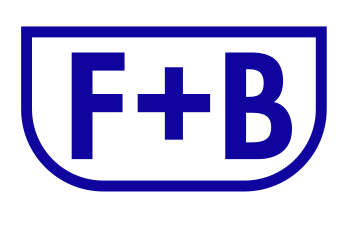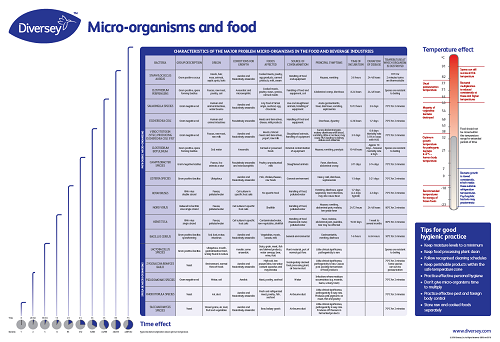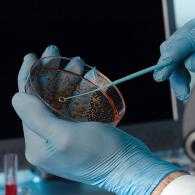Keeping Production Personnel Aware of Common Bacteria
Pathogenic microorganisms such as Listeria, Salmonella and E. Coli pose a significant risk to human health. Food poisoning caused by cross-contamination during processing and packaging can result in serious consequences for manufacturers; product waste, product recalls, litigation and damage to brand reputation can all be caused by taking risks with food safety.
Product waste, product recalls, litigation and damage to brand reputation can all be caused by taking risks with food safety
Companies in the industry commonly implement good hygiene practices and sanitation procedures but they are only as effective as the personnel who are performing them, their knowledge of the problem microorganisms and the risks they pose. To reduce the risk of a contamination event, production personnel should be aware of common bacteria, the sources of contamination and the preventative actions that need to be followed to avoid a food safety breach.
To maintain a good level of hygiene in the production area, induction training and regular refresher courses should be provided, in both theory and application, to improve general knowledge of good practice and ensure standard operating procedures of sanitation equipment are followed properly.
Resources Available from Diversey
Employee behaviors can be shaped by utilizing various communication methods, such as visual aids, strategically placed around the production area. Our downloadable wall poster - Problem Microorganisms in the Food and Beverage Industry - can be used to help communicate the variety of problem microorganisms, their incubation times and the risk they cause to human health.
Download the Wallchart
The Diversey Hygiene Academy, a cloud-based eLearning environment, provides training on food microbiology, good manufacturing practices and chemical safety alongside hygiene application courses such as open plant cleaning, cleaning in place and bottle washing. Courses can be accessed as part of a company-wide initiative (which includes the flexibility for companies to deploy their own training courses from the same platform) or can be purchased directly by individual users for their own professional development.
Other services from our Knowledge-based Services portfolio can be used to validate manufacturing hygiene and sanitation practices. For example, SecureCheck will benchmark microbiology performance against industry standards and simplify the management of food safety and hygiene across all areas of your production process while CIPCheck will evaluate the effectiveness of Cleaning in Place systems.
Our 8 Top-Tips for Reducing the Impact of Food Microorganisms
- Keep moisture levels in processing rooms to a minimum
- Keep food processing plant cleaned and disinfected
- Follow recognised cleaning schedules and SSOPs
- Keep perishable products within the safe temperature zone
- Practice effective personal hygiene
- Don’t give micro-organisms time to multiply
- Practice effective pest and foreign body control
- Store raw and cooked foods separately








